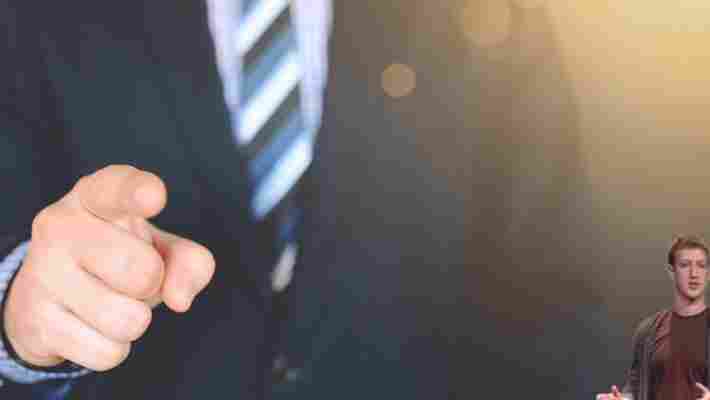The first weekend of December has been and gone, so Christmas must be just around the corner. But the blockchain doesn’t care about Christmas, it keeps on going no matter what.

Which means, there’s some catching up to do. Here are Hard Fork’s top cryptocurrency and blockchain news picks from the last weekend.
1. At the latest G20 summit in Buenos Aires, world politicians discussed a global cryptocurrency business tax . It’s currently illegal for a country to tax a business that doesn’t have a physical presence there, so it almost makes sense. If the tax does materialize, it’s a while away yet, as G20 countries are to go away and make make proposals for a final version to be created by 2020.
2. North Korean hackers are continually finding new ways to steal cryptocurrency from unsuspecting victims. The latest scandal sees hackers from the country going after the Bitcoin stashes of individuals . Previous tactics from North Korean hackers have targeted institutions like universities and cryptocurrency exchanges . Analysts say that Pyongyang is using the method to generate additional income as the country buckles under international sanctions.
3. The Japanese Financial Services Agency (FSA) is looking set to deploy a regulatory framework for initial coin offerings (ICOs). According to local sources, the FSA is looking to protect citizens by limiting the amount one can invest in an ICO. The framework will also require ICOs to be registered with the agency too. While Japan may have granted the cryptocurrency industry self-regulatory status , this doesn’t prevent the FSA from setting some of the rules.
4. Venezuela’s President Maduro has done everything Satoshi Nakamoto said couldn’t be done and has manipualted the price of the country’s cryptocurrency, the Petro . Maduro has announced that the Petro has increased from 3,600 sovereign Bolivars to 9,000. That said, the cryptocurrency is barely a cryptocurrency, let alone a currency. There is still no wallet to support Petro, and purchases of the coin are issued to buyers with certificates ( paper wallets ). It would seem the cryptocurrency isn’t totally immune to inflation.
5. Mobile phone manufacturer, Huawei, made the launch of its Blockchain Services (BCS) earlier this month official in a press release published late last week. Much like Amazon’s recent announcement of its own blockchain cloud services, Huawei is claiming the service will help developers create, deploy, and manage blockchain applications. Huawei’s system is built on the open source blockchain software, Hyperledger Fabric.
Even though the cryptocurrency market has had one of its worst weeks this year, governments still want regulation, there are still hackers, and there are yet more talks of cryptocurrency taxes. Maybe these are the only things we can be certain of in cryptocurrency’s future.
France to create a joint G7 cryptocurrency task force amid Facebook’s Libra woes
France is putting together a Group of Seven Nations (G7) task force to explore how central banks can make sure cryptocurrencies adhere to money-laundering and consumer protection rules.

That’s according to the country’s central bank governor who announced the news today.
The announcement comes days after Facebook announced the launch of its upcoming digital currency , Libra.
According to Reuters , France, which currently holds G7’s rotating presidency, has said it’s not against Facebook creating an instrument for financial transactions. But, it opposes that instrument becoming a sovereign currency.
It’s important to note that despite Facebook, and several mainstream media outlets, branding Libra a cryptocurrency, it can be argued the term has been used quite loosely .
As previously reported by Hard Fork , the total amount of Libra tokens in circulation will depend on the balances of its users, going against what happens with major cryptocurrencies such as Bitcoin, which feature a fixed, limited supply.
Facebook, which is moving into the digital payments space, partnered with a host of well-known financial institutions including Mastercard, but also fellow technology companies such as Uber and PayPal to create Libra Association. The association will be based in Geneva and will be tasked with overseeing the new coin.
Although no banks have joined the consortium as of yet, the announcement didn’t go unnoticed by the world’s financial and political bigwigs.
The US Senate Banking Committee is due to hold a hearing on Facebook‘s plans next month. David Marcus, responsible for leading Facebook‘s blockchain work, is expected to testify.
More recently, Mark Carney, the Bank of England’s governor said Libra had to be safe for consumers to use or else risk not happening. He also said the world’s major central banks will need to have oversight of the coin.
It’s not surprising that mainstream finance and governments are throwing their toys out of the pram, but it’d be interesting to see how things play out in the near future and whether any reactions to Facebook‘s Libra have a sizeable impact on the cryptocurrency world.
IBM’s blockchain-powered AR gaming system is dangerously flawed
You might be hard-pressed to point to a service that productively combines the use of augmented reality (AR), machine learning, and blockchain – but that doesn’t seem to bother IBM.

The company has filed a patent application for a complex AR gaming system, designed to steer players away from potentially dangerous physical spaces. To this end, IBM intends to use machine learning and blockchain tech to build this new system.
But does this approach make sense? Well, let’s dig into into the patent file.
Inside the patent
According to the patent (spotted by CCN ), the system will notify players any time they approach an area marked as undesirable (like “h igh risk locations, culturally sensitive locations, locations marked by property owners”). IBM hopes this will help players navigate away from trouble.
The documentation notes that once players have agreed to having their location data tracked, the system will be able to compare users’ location against a database of physical spaces marked as undesirable. Whenever a player enters such areas, the system will notify users they’re walking on potentially dangerous turf.
Considering the litany of trespassing incidents we saw during the Pokémon Go craze, creating a system that directs players away from restricted areas sounds like a good idea on paper. But there are a number of technological challenges to take into account – starting with IBM’s use of blockchain.
The problem with using blockchain
IBM says it intends to use blockchain to establish “trust” about “real world locations” and prevent malicious players from providing misleading location data for personal gains.
“ A blockchain is a distributed database that maintains a continuously-growing list of data records hardened against tampering and revision,” the patent reads. “The blockchain system securely tracks, stores, and maintains location related transactions along with other location metadata.”
But there are some pretty big question marks with this implementation.
For one, the use of blockchain does not by itself protect against the possibility of recording misleading (or straight-up false) data. It merely implies that once recorded, data will be immutable (unless the blockchain has backdoors built into it). But that doesn’t mean the system will be immune to manipulation.
For instance, malicious actors will still be able to feed false location data to IBM’s blockchain-powered system, unless it also comes with oracles – sensors specifically designed to validate events that take place outside of a blockchain. Worryingly, there is no mention of an oracle implementation in IBM’s patent application.
To create this sort of “trust,” IBM will need to develop sensors that can adequately confirm the authenticity of any location data in the real world before storing it on its own blockchain.
Blockchainifying machine learning
Even more confusing is IBM’s plan to use machine learning to interpret blockchain-stored location data and warn users of potential risk.
The patent suggests that, thanks to advanced neural networks, the system will be capable of conducting risk prediction tasks with “varying degrees of confidence.” Those predictions will then be forwarded to any users who might be at risk, or in the vicinity of risky areas.
IBM points out users will also be able to use this functionality to specify what they would like to be protected from. For instance, a diabetic player can ask the system to notify them anytime they’ve strayed away from any possible help.
But without oracles in place, it could prove too easy for cheaters to abuse the system. Indeed, a malicious player could label safe areas as “risky” to keep competing players away from certain locations. Or alternatively, scammers could abuse the system to mark otherwise risky areas as “safe,” and lure unsuspecting victims into dangerous situations.
IBM and the blockchain
All these issues aside, IBM has yet to indicate how serious it is about its patent. In any case, blockchain might not be the best choice for this particular application.
As is the case with most patent filings, there is no telling when – if ever – IBM will greenlight the concept for development. But if it does, it better address these issues before it puts someone at risk.
And for what it’s worth, I sincerely hope IBM’s other blockchain-related initiatives are a little better thought out.











